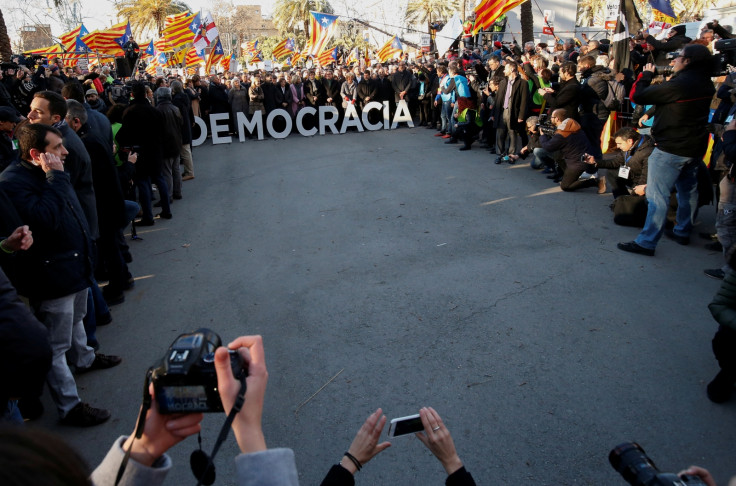In the Field Podcast: Catalonia demands 'Democracia' as former leader faces trial
Liz Castro explains why Catalans are back on the streets calling for freedom from Spain.

Catalans took to the streets in their tens of thousands last week to protest the trial of outspoken former leader Artur Mas, who is accused of organising a 2014 referendum in the north-eastern Spanish province in which 80% of voters backed Catalonia's independence from Spain.
Mas, who was the president of Catalonia from 2010 and 2016, and two of his former ministers are charged with serious civil disobedience for organising the poll, which was declared illegal by Spain's Constitutional Court. If found guilty, Mas could be barred from political office for 10 years.
It would be an understatement to say that Catalan independence is a controversial topic in Spain. It is estimated that in Catalonia, a region of some 7.5 million people with its own language and distinct culture, 44.9% of Catalans favour independence compared to 45.1% opposed. But a vast majority want the chance to vote on the issue either way.
In the 2014 poll, 80% voted in favour of independence, although only 2.3 million voted out of 6.3 million registered voters.
Since 2015, the province has been ruled by a pro-independence government and protests have gathered steam. Spain's Prime Minister, Mariano Rajoy, has ruled out giving Catalonia a referendum but the government has threatened to hold one anyway.
On this week's In the Field Liz Castro, a writer, publisher and pro-independence activist, spoke to IBTimes UK about the origins of the Catalan movement, its struggle and the prospects for Catalan independence going forward.
Subscribe on iTunes to In the Field, IBTimes UK's weekly podcast on world affairs.
© Copyright IBTimes 2025. All rights reserved.






















